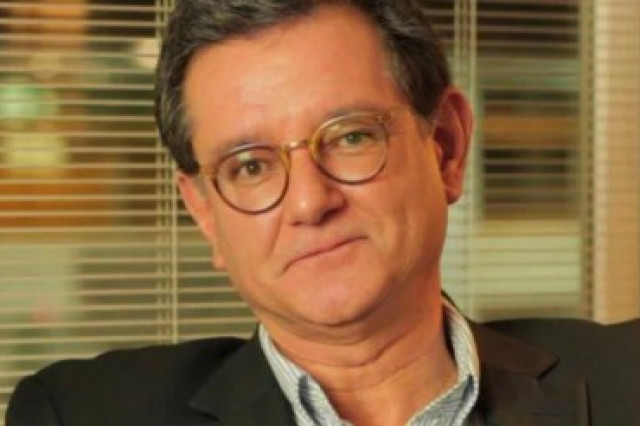"When the rockets are finished, only smoke will be left" (Andrés Naguel, painter and sculptor)
"There has been a disharmony between the progress of the techniques and their metabolization, which generates the anxiety of the race to be on the page" (Lamberto Maffei, In Praise of Slowness, Alianza, 2016, pp. 70-71)

We arrived the last. Even so, we have entered the fervour or enthusiasm for transparency, as Innerarity acknowledges (Daniel Innerarity Grau - Bilbao 1959 - philosopher and essayist). In this case, to be the first. Let us look at some expressions of lies, whether pious, noble or direct, of transparency. In truth, they are rather solitary traps.
There is an official discourse that is persistently repeated: we have the most advanced law in the matter. First lie is "pious" or political. Something that breaks new ground that was designed in its day by Jonathan Swift in their magnificent book: The Art of Political Lie: "There is one essential thing, -he said- that distinguishes political lies: they must be ephemeral." In this case it is not. However, such is the exaggeration of the law that no-one would take it seriously outside our borders. It is a law that not only is late in arriving, but is full of holes. With incomprehensible adhesions, to the point that neither the legislator himself understood an iota about what good government is.
But the truth is that we do not have a law, rather a real torrent of laws, each one pretending to go further than the previous one. With each law that is approved, the song is repeated: they always say that it is the most advanced. Another lie, also of the same type. And now there are many laws that prove the saying that "transparency paid for with blood (i.e. sanctions) stick". If this is the solution, let's go this way.
Transparency has become a mantra
Transparency has become a mantra. Everything that it touches, it transforms, if not in sacred, at least in good. More transparency, more democracy. The third lie. In effect, transparency can be an instrument of democratic control of power. Something that is far from is happening today. But no-one saves us from the misuses or deviant uses of a misunderstood transparency, such as the cheap gossiping of spectators which means that political scandal is its source of search or throwing them as weapons at their political opposition to wear down the government, whatever it may be. Effective transparency requires a politically mature society.
In order for transparency to fulfil this dignified role of democratic control mechanism of the power directly exercised, it is necessary that transparency be exercised by a large number of the general public
In order for transparency to fulfil this dignified role of democratic control mechanism of the power directly exercised by the citizenry and also serves as a means of effective accountability, it is necessary that transparency be exercised by a large number of citizens. And its purpose must be informative, to control what is done in the public sector, how it is done and with what resources. That massive or intense use is neither given nor expected. Transparency portals (in spite of the deployment of means and resources that are required for their implementation) are scarcely visited and, in almost no case, for the aforesaid purpose. At least for now we have a fourth lie, which I presume is going to last for a long time.
Let us be honest, the claim to universalize citizens' right to know through the exercise of the right of access to public information has been a true fiasco so far. It is hardly exercised. Even though the Council on Transparency and Good Governance itself has had to carry out institutional campaigns to stimulate its use and to justify its own existence. Neither the idiots nor the lazy have managed to create multiple parallel institutional structures (some especially dense) in the vast majority of Autonomous Regions. The new (fake) rich syndrome. But of course, transparent.
The general public ignores the right or, worse still, hardly makes any use of this channel. The few consumers of this right are identified: covert journalists, political groups (direct or indirect) who choose to use this path (as an alternative to the exercise of their fundamental rights derived from Article 23.2 EC) to obtain information and to exercise opposition to the Government "making it blush". There are some entities with specific interests or who are new players in this new world of transparency, and a few citizens with singular obsessions or with a lot of free time. The end result is pyrrhic: a broadly configured and poorly exercised right. The young, digitalized generation where they exist, supinely ignore all this. Today, the universal right to know is a lie. It exists, but it is not exercised. The fifth lie.
Our words are rich with "open government" and hardly a bit of it enters our political-administrative structures
Let's not talk of collaborative transparency
The opening up of data and its reuse, so emphatically recognized in law, is the sixth lie. We continue to confuse the publication of the laws and their application. Our conscience is calm with the first step (publication) and dispenses with the second (application). A disappearing act. It will take time, in some cases time immemorial, for these objectives to become real, at least in certain public administrations.
It is better not to talk about collaborative transparency. At least the legislator, in most cases, defines the problem. Our words are rich with "open government" and hardly a bit of it enters our political-administrative structures. It is an article of faith. It does not even reach the level of lying, since in most cases it has not even been articulated. Something similar happens with the incidence of transparency in the change of culture of public organisations (how easy it would be to move from the "culture of opacity" to that "of transparency"!). The steps taken so far do not exceed the mere cosmetic stage. Whilst it is true that some public employees use Transparency Portals or web pages to look for information needed in their own work, generally with more intensity than the general public themselves. But it is simply a means that facilitates the search, but not at all a lever of change of the organizational culture, nor of transformation in the ways and means of doing things.

There is, in fact, much rhetoric in this imperative of transparency. A world full of slogans, staging and lots of express communication that multiplies the achievements. It is what we say: "what we can't see, does not exist", as Byung-Chul Han admits; a philosopher especially critical of transparency.
There is also much business. The public sector is investing significant amounts of resources to show, to the exterior, that each level of government and administration is the most advanced, the most transparent, the one that has a more accessible Portal, the one who uploads most public information, whether relevant or not. In the heat of all this movement (to where?) of transparency, there is no doubt that "non-profit organisations" are profiting from the endless shortages offered by the public sector and that they offer themselves to remedy. Management consultancy (computer or organizational systems) is proliferating in this area. It is the time to sell. There is a market. It is also time to mass-train (in what and how?) public employees who are usually sceptical and reluctant to change their habits and internalize what that transparency values entail in their daily activities.
Something is not working in this impetuous movement
Instruments proliferate and tools are everywhere. Programmes and projects multiply. We are innovating, or so it is said. Multiple social experiences are publicized through social networks, so-called good practices, and prizes and awards are shared between them; there are those "faithful" to transparency, who also exist. Applause everywhere and innumerable "likes". Fervent drivers of a change that is not perceived, not even suspected. Social networks are the means (not infrequently, even though it sounds paradoxical) of "endogamous" diffusion of their creed. With little repercussion, at least for now.
But something is not working in all this impetuous movement, characteristic of the speed of instant connectivity, that Paul Virilio would say. Or the instant obsolescence of vacuum. And maybe the discourse, orientation and really knowing where we want to go or where we should go, why and for what. There is little institutional thinking, let alone slow and steady. The imperative, as Lambert Maffei (following Kahneman) recently recalled, is the quick thinking that easily transforms into action, rather than the slow thinking that guarantees the true progress and the result is forgotten or, worse, despised. There is also an emaciated reflection (powerpoint), tweet or post and barely any conceptual editorial on the real meaning and scope of transparency. Only a rush to be the first and attract an award, recognition or look good in one of the multiple rankings that proliferate everywhere. Stick out your chest and be in the news. The triumph of the ephemeral. Transparency, as we (mis)understand it, is a magnificent showcase for exhibition politics to take firm roots. To the detriment of everyone.
In the heat of all this movement of transparency, there is no doubt that "non-profit organisations" are profiting from the endless shortages offered by the public sector
All this under the indifferent gaze of the general public, existing completely separately and unrelated to all this unbridled boiling of transparency. There is a consumption of "closed circuit" transparency, which does not penetrate the walls of civil society and barely leaves the specialized or "scandalized" space of social networks. If this is carries on like this, it will soon become (if it has not already) pure smoke and mirrors. It will be a shame, because the innovative or transformative potential that the true transparency well understood will have been killed off.










